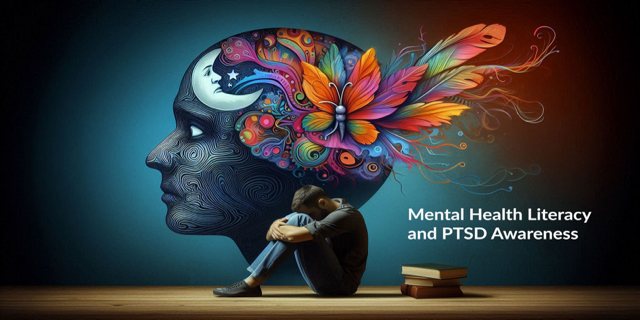When teaching as an assistant professor, I had an experience which I shared in a post in 2012 called Guardian Angels and Mental Health. I’ll tell a bit of the story here.
I was teaching an introductory course in persuasion at a nearby university Simultaneously challenging and
fun, I spent most of my time keeping my learning curve just ahead of my students.
For some reason, a large number of seniors took the class.
Mid-semester, one of those seniors disappeared. He just didn’t show up for class. Being a senior, he needed the hours to graduate. I assumed he might be coasting until he graduated, doing as little as possible to get that credit. “His loss,” I thought, as I hoped that he would study other classmate’s notes for the exam. Weeks passed…in fact, it was right before final papers had to be turned in…and my long-lost student showed up.
Irritated, I put on my “stern face” and asked that he stay after class.
He stayed behind and waited.
With just the two of us in the room, I had thoughts of fussing a bit at this recalcitrant senior who I thought might be taking advantage of the young professor. But then something, perhaps his guardian angel, made me take a breath. Without real thought, the words, “Are you ok? I’ve missed you. What’s been happening?” came from my mouth.
He looked surprised but answered. “I’ve been in bed,” he said. “I’m scared. My dad thinks I’m going to graduate…he’s looking forward to coming. I can’t disappoint him.”
“In bed? When did this start?” I asked. Then I heard his story. The year before, in February, his mother had died of cancer. He didn’t know why, but that semester he had simply shut down and hadn’t been to any of his classes.
The importance of mental health literacy
Let’s take a step away from this memory to present day. Recently, I looked up Cambridge Dictionary’s definitions of literacy. The first, which people seem to rely upon exclusively, is “the ability to read and write.” But the second definition is “knowledge of a particular subject or a particular type of knowledge.” When discussing “mental health literacy,” we are using the second definition.
So, mental health literacy is about the knowledge and attitudes people have toward mental health and mental health services. To study mental health literacy, researchers ask questions about people’s knowledge and ability to identify symptoms of poor mental health. They also ask about knowledge and beliefs around:
- the causes of poor mental health
- self-compassion and self-care practices to maintain good mental health
- mental health services and
- people’s intentions of actually using mental health services. [1]
Men and Mental Health Literacy
Studies have shown that people who had greater mental health literacy also have more positive attitudes toward mental health and mental illness. In one study of over 300 university students, women had significantly higher levels of mental health literacy than men. Some of the positive aspects of having higher mental health literacy are higher levels of self-compassion (being kinder to yourself), experiencing lower levels of stigma around mental health, having strong social support and having more help-seeking behaviors.[1]
Another study of over 700 people, found that mental health literacy predicted mental health attitudes for both men and women. Generally, men scored lower on mental health attitudes than women. Moderating this result was being married. Men who were married scored higher than unmarried men. Another factor that helped increase men’s attitudes toward mental health was having more social support as well as having experienced higher levels of depression. The researchers concluded that increasing mental health literacy might help men and women to access mental health services, reduce the stigma around accessing mental health services, and be more compassionate with themselves and others. [2]
Post-traumatic Stress Disorder Awareness Month
What is post-traumatic stress disorder? Post-traumatic stress disorder (PTSD) is a mental health condition. PTSD is a response to witnessing or experiencing a traumatic, life threatening event, like being in combat. An upsetting or distressing event, like an anniversary, can trigger PTSD with symptoms that can include flashbacks, nightmares, anxiety, and uncontrollable thoughts about the event.
PTSD is one of the most common mental health disorders among United States veterans, with around 7% of veterans and around 13% of active duty military personnel having a PTSD diagnosis.[3,4,5] Though we might think of PTSD as being only among the military, one study described in Medivizor’s Library identified PTSD in 21.7% of cancer patients six months after diagnosis. Even after four years, 6.1% of the patients still had PTSD. Research also indicates that a cancer diagnosis can cause PTSD not only in patients but also in caregivers like parents of those who had childhood cancer or someone, like my student, who has cared for a family member with cancer.
Below is a PTSD checklist . Researchers have compared the results obtained from patients taking the PTSD checklist with an 82-item Impact of Cancer Scale and have determined that it is an effective measure for determining if you are experiencing PTSD.
This is a self-administered checklist. You indicate the degree to which you have been bothered by the symptom.
“Instruction to patient: Below is a list of problems and complaints that veterans sometimes have in response to stressful life experiences. Please read each one carefully, put an “X” in the box to indicate how much you have been bothered by that problem in the last month.”
Be sure to go here: https://www.mirecc.va.gov/docs/visn6/3_PTSD_CheckList_and_Scoring.pdf “
Mental Health Literacy and My “Ah Ha Moment” With My Student
Back to my student….
I am grateful for the grace given to me at that moment when I asked my student what had happened. But I am also incredibly thankful for the mental health literacy I had acquired prior to this event. Because of this knowledge, I recognized that this young man had experienced a trigger event, the anniversary of the death of his mother. Luckily, I understood the symptoms and was able to help him get the help he needed before the situation worsened. He went to a counselor and his other professors were notified of what had been happening. With all of us working together, this student graduated that year with his dad in attendance.
Mental health literacy is vital…it can save a life.
There should be no shame in admitting depression, experiencing PTSD, no shame in seeking help. Being knowledgeable about signs and symptoms of mental distress is a gift that you can share: with knowledge you can become an advocate for yourself and others.
1.Gorczynski P. & Sims-Schouten W. (2024.) Evaluating mental health literacy amongst US college students: a cross sectional study, Journal of American College Health, 72:3, 676-679, DOI: 10.1080/07448481.2022.2063690
2.Lee H . Hwang J. Ball, J. et. al. (2020). American Journal of Health Behavior, Volume 44, Number 3, May 2020, pp. 282-291(10). https://doi.org/10.5993/AJHB.44.3.1
3.Wisco BE, Marx BP, Wolf EJ, et al. Post traumatic stress disorder in the US veteran population: Results from the National Health and Resilience in Veterans Study. J Clin Psychiatry 2014;75:1338–1346. doi: 10.4088/JCP.14m09328.
4.Smith SM, Goldstein RB, Grant BF. The association between post-traumatic stress disorder and lifetime DSM-5 psychiatric disorders among veterans: Data from the National Epidemiologic Survey on Alcohol and Related Conditions-III (NESARC-III). J Psychiatr Res 2016;82:16–22. doi: 10.1016/j.jpsychires.2016.06.022.
5.Judkins JL, Moore BA, Collette TL, et al. Incidence rates of posttraumatic stress disorder over a 17-year period in active duty military service members. J Trauma Stress 2020;00:1–13. doi: 10.1002/jts.22558.








